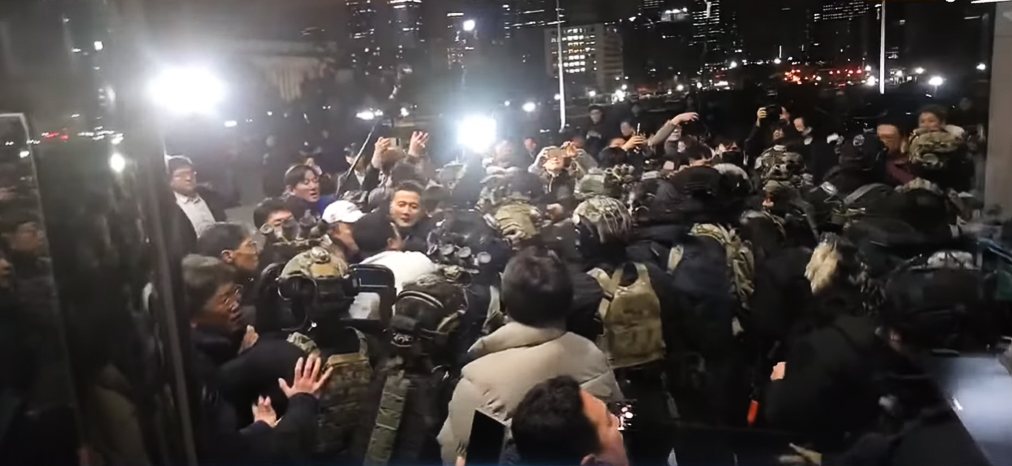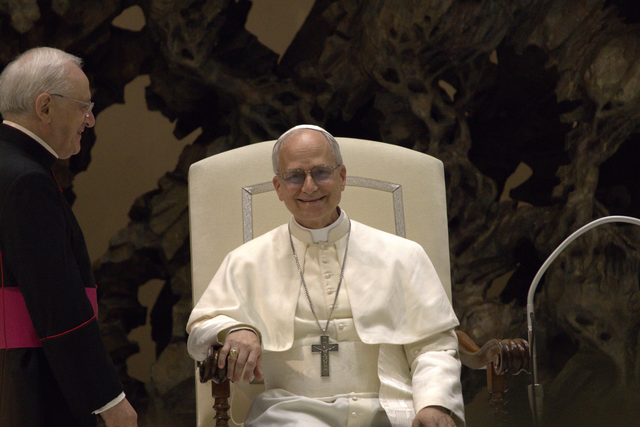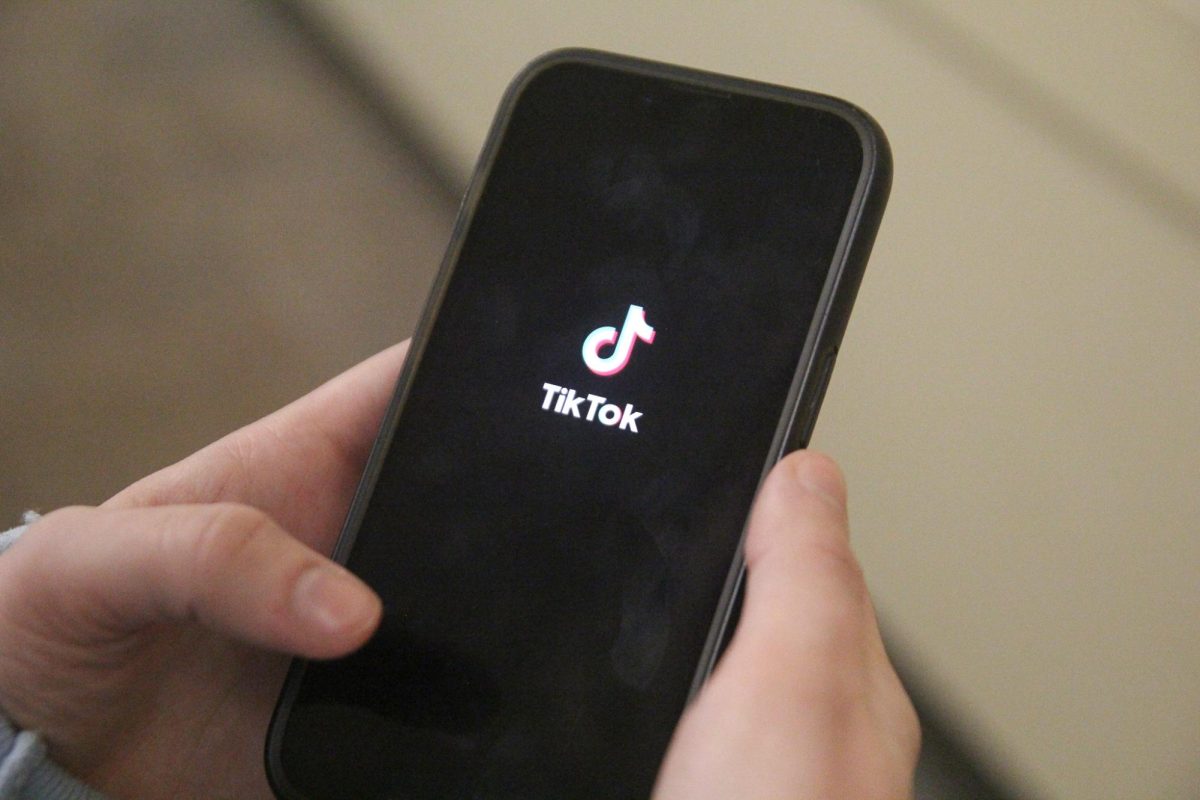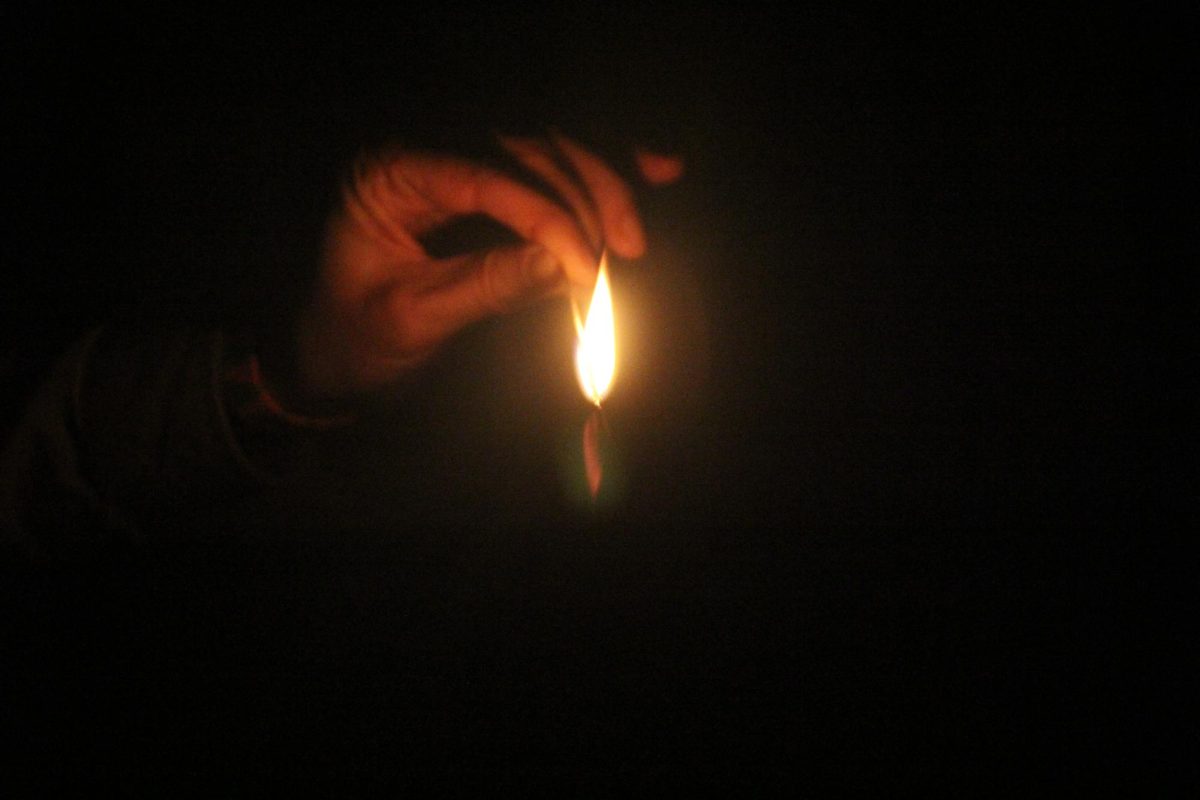South Korean president, Yoon Suk Yeol, declared martial law on December 3, 2024 at 10:27 PM (KST). In his announcement, Yoon claimed that the martial law was so that he could eliminate North Korean agents in the opposition parties, and that these supposed North Korean agents were planning a rebellion. Although according to an article from AP News on December 7th, many are saying Yoon declared martial law because he has been struggling politically:
“There were quick claims that the martial law declaration was linked to Yoon’s political struggles. He has had little success in getting his policies adopted by a parliament that has been controlled by the opposition since he took over in 2022[…] Just this month, Yoon denied wrongdoing in an influence-peddling scandal involving him and his wife[…]”
It appears that the martial law and accusations towards opposition leaders may have been an attempt at bringing down the people who have gotten in the way of his policies. His goal was probably to prey on his opposition’s fear of North Korea to make them comply with his demands. However, no one bought his claims and his martial law was repealed within hours by Parliament—some of the members even climbed fences to get into the building past the guards placed by Yoon. Along with parliament sneaking into the National Assembly Building, there were massive protests in Seoul where citizens built effigies, called for impeachment, sang impeachment carols, and did light stick shows. Early on in the protests as well there were some remarkable moments such as a Korean woman grabbing a soldier’s gun and yelling “Aren’t you ashamed of yourself.”
The South Korean parliament quickly pivoted from ending martial law to impeaching Yoon. A different article from AP News on December 7, 2024 states:
“South Korea’s embattled President Yoon Suk Yeol avoided an opposition-led attempt to impeach him over his short-lived imposition of martial law, as most ruling party lawmakers boycotted a parliamentary vote Saturday to deny a two-thirds majority needed to suspend his presidential powers.”
This might be confusing since the president’s party has been calling for him to step down. If they want him gone, why not impeach him? If Yoon steps down the prime minister, Han Duck-soo, will take his place, and because the prime minister is also in the People Power Party that the president is in, the party prefers a resignation. The alternative being that they impeach Yoon under South Korean law they will hold a new election within 60 days, and the People Power Party fears that after recent events a member of the Democratic Party will take over as the president. So to ensure that they get a member of their party back into the presidency the PPP lawmakers are boycotting the vote so that they are neither voting against the people’s cries or losing the presidency. This is why the PPP leader continues to call for the resignation of Yoon.
While sudden martial law would be extreme and met with fierce resistance in most countries the history of South Korea gives it much deeper significance. In the words of a CNN article from December 7, 2024:
“The declaration of a military emergency, although short-lived, was met with shock and anger across the country, which remains deeply scarred by the brutality of martial law imposed during decades of military dictatorship before it won a long, bloody fight for democracy in the 1980s.”
In South Korea, martial law has a recent association with oppression. It has been less than 40 years since the country was a military dictatorship, and many Koreans remember the difficulties of living in an autocracy. Throughout the 1950s, martial law was used to suppress anti-government protests after the Korean War, and through the 60s and 70s Army General Park Chung Hee used martial law to stop protests and–as Yoon was accused of attempting–jail critics. Within two months of Chung’s death another general took over and killed 200 people in his stopping of a pro-democracy protest.
Yoon made such a massive political blunder that his own party has turned on him, and he chose to do it while his ratings were already in the gutters without any benefit of the doubt from his people. However, even when Yoon strikes such deep and recent wounds all the lawmakers seem to think of is what will benefit their party the most. The difficulties of Korea in this time should be a wake up call to the selfishness within politics and how there is ever to be proper change we must get over political divisions.









